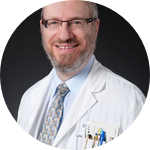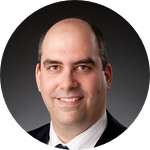About This Project
Ask the Scientists
Join The DiscussionWhat is the context of this research?
One of our key researchers has determined a single gene that produces an enzyme in the brain, and when too much is produced, it leads to the cellular conditions that appear to cause several degenerative (in aging) and developmental disorders. If we are correct - and loads of data suggests we are on the right track - then a single drug, targeting this enzyme, could treat or prevent a whole list of these terrible diseases. Our goal is to prove to the drug development community that this model, and the proposed therapy, can reverse this problem effectively so we can get to 'first in man' trials.
What is the significance of this project?
The key researcher has published papers on the topic in several high impact journals, but since so many hundreds of millions have been invested in amyloid-based research - now failing around the world - we need to invest in alternative approaches. It is now recognized that Alzheimer's, Parkinson's and schizophrenia share many common pathological features - that can be measured, targeted and possibly corrected. His lab has demonstrated that this is the case in mice, specially bred to get these diseases, but we need to finish the research steps under different conditions (and prove we are better than the gold standards) before we can get a drug company to fund the human phases of the trial.
What are the goals of the project?
100% of the funds will be used to breed mice with these disorders and test the target drug for efficacy, comparing their performance with current drugs on the market. If we can prove that our model is correct and the product works better in the animal model than the current therapies on the market, we can complete the last steps and get to 'first in man' trials - the most exciting part!
Budget
Since the project is taking place in an academic lab, 100% of the funds will go to raising and dosing the experimental mice, the compound and the drugs to which they are compared, and to pay for starving postdoc students to conduct the tests.
No salary will go to the primary investigator, the commercialization office or any other agent. Like all grants, a small amount is kept aside for basic infrastructure (animal health, research ethics and some lab costs) but these are all lower costs in the hospital than the industry standard.
Meet the Team
Affiliates
Jewish General Hospital
Team Bio
- Dr. Schipper received his M.D. and Ph.D. (Neuroendocrinology) degrees at McGill University in 1982. His doctoral work was supervised by Dr. James Brawer (Dept. of Anatomy & Cell Biology) and demonstrated pathological effects of estrogen on the hypothalamic arcuate nucleus.
- He studied Internal Medicine at McGill University, Neurology at Columbia University, and Endocrinology at Tufts University.
- Dr. Schipper is currently tenured Professor of Neurology and Medicine (Geriatrics) at McGill, staff neurologist at the Jewish General Hospital, and consultant at other Montreal institutions.
- At the JGH, he was founding director of the Centre for Neurotranslational Research, a Biomedical Redox Laboratory and the Alzheimer Risk Assessment Clinic. He was also a founding scientist of Molecular Biometrics Inc.
- Dr. Schipper’s long-standing research interests are in the fields of Oxidative Stress, Brain Aging and Neurodegenerative Diseases.
- Dr. Schipper has published over 170 articles on various aspects of the redox neurosciences and related topics in peer-reviewed journals and is an inventor on 14 patents. He edited 3 books, the latest a 3-volume set on Principles of Free Radical Biomedicine published in 2012.
- Dr. Schipper coordinates an interdisciplinary course on Free Radical Biomedicine in the Faculty of Science at McGill University, and is currently Chair of the Biological & Clinical Aspects of Aging Committee at the CIHR.
Hyman Schipper
- Dr. Schipper received his M.D. and Ph.D. (Neuroendocrinology) degrees at McGill University in 1982. His doctoral work was supervised by Dr. James Brawer (Dept. of Anatomy & Cell Biology) and demonstrated pathological effects of estrogen on the hypothalamic arcuate nucleus.
- He studied Internal Medicine at McGill University, Neurology at Columbia University, and Endocrinology at Tufts University.
- Dr. Schipper is currently tenured Professor of Neurology and Medicine (Geriatrics) at McGill, staff neurologist at the Jewish General Hospital, and consultant at other Montreal institutions.
- At the JGH, he was founding director of the Centre for Neurotranslational Research, a Biomedical Redox Laboratory and the Alzheimer Risk Assessment Clinic. He was also a founding scientist of Molecular Biometrics Inc.
- Dr. Schipper’s long-standing research interests are in the fields of Oxidative Stress, Brain Aging and Neurodegenerative Diseases.
- Dr. Schipper has published over 170 articles on various aspects of the redox neurosciences and related topics in peer-reviewed journals and is an inventor on 14 patents. He edited 3 books, the latest a 3-volume set on Principles of Free Radical Biomedicine published in 2012.
- Dr. Schipper coordinates an interdisciplinary course on Free Radical Biomedicine in the Faculty of Science at McGill University, and is currently Chair of the Biological & Clinical Aspects of Aging Committee at the CIHR.
Dan Cohen
I am the Director of Commercialization for the Sir Mortimer B Davis Jewish General Hospital in Montreal. The JGH has a dedicated research arm, the Lady Davis Institute, which has more than 200 clinical and bench researchers working on a variety of topics. Most of the funding for these activities come from large granting organizations (NIH or CIHR) but some of them - very promising ones - don't get funding in a hypercompetitive environment. My job is to choose the most promising projects that lead to treatments, cures and vaccines, and find a way to fund them, even though they are early stage.
Project Backers
- 2Backers
- 1%Funded
- $125Total Donations
- $62.50Average Donation

